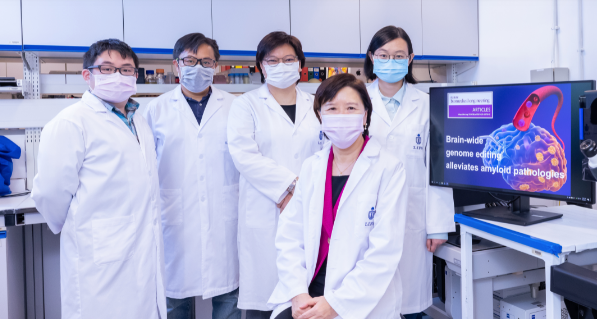
An international research team led by scientists from the Hong Kong University of Science and Technology (HKUST) has developed a novel strategy using brain-wide genome-editing technology that can reduce Alzheimer’s disease (AD) pathologies in genetically modified AD mouse models. This advanced technology offers immense potential to be translated as a novel long-acting therapeutic treatment for AD patients.
In China alone, over 500,000 patients are estimated to be living with a hereditary form of AD - familial Alzheimer’s disease (FAD), which is a congenital form of AD highly associated with family history.
Using a newly engineered delivery vehicle for genome-editing, this new strategy achieves efficient brain-wide genome editing through a single non-invasive intravenous administration.
This effectively disrupts FAD-inflicted mutations in AD mouse models and ameliorates AD pathologies throughout the entire brain, paving the way to novel therapeutic development for the disease.




